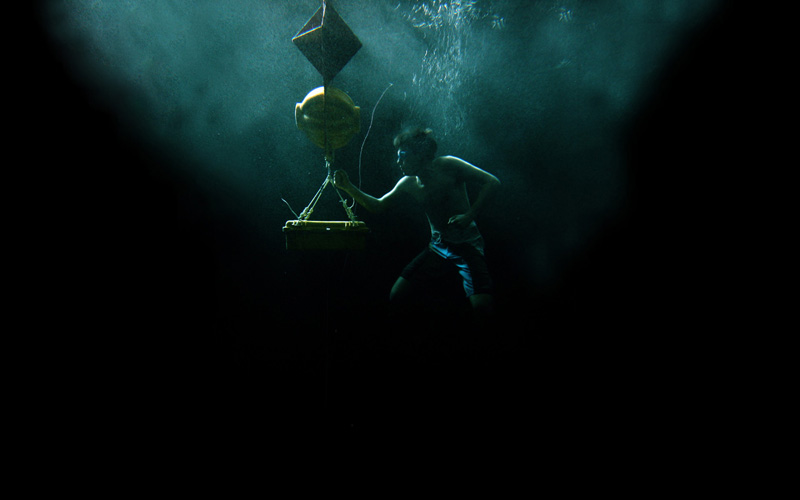 The Winning Photo: Ben Sheppard and Robert Howshall's Pebble Project
The Winning Photo: Ben Sheppard and Robert Howshall's Pebble Project
Photo contests are a dime a dozen (and typically $10 to $30 a shot), but here's one that's a little different: the Nokia Photography Competition at the Department of Engineering at the University of Cambridge, in the UK. The criteria: "We are searching for an image that relates to research or teaching in the Department or engineers out in the field, which may be beautiful, fascinating, intriguing, amusing, or possibly all of these things." Check out the winners for yourself (noting that this is one case where reading the descriptions adds to the pictures).
(Thanks to Ted Johnson)



Loved the UK teddie's in space shot - One small step for bearkind. NASA eat your heart out.
Posted by: G Copper | Monday, 10 August 2009 at 03:04 PM
Mike, I'd like your opinion on this, as a hypothetical photography contest judge.
My favourite photo of the lot is this one. When I looked at it full size I saw at least 6 hot pixels and 2 dust bunnies.
While the aesthetic quality of the pic isn't diminished (too much), I can't help but think that the photographer maybe didn't care enough about the photograph if he didn't fix those problems. I am not a pixel peeper by nature, but that bright red pixel in the middle of the beautiful pattern just makes me want to take my nail to the screen to clean it off. I find it very distracting.
So, would these issues influence how you would (hypothetically) judge such a photo?
Posted by: Miserere | Monday, 10 August 2009 at 05:50 PM
Concerning the Hotpixels question.
Maybe this is just a scientist thing; "Don't touch evidence". I suppose this is the opposite extreme to what we see in a lot of Photographer contests where the editing has been overdone? Of the two I prefer this approach
Posted by: Christian Kurmann | Tuesday, 11 August 2009 at 02:04 AM
Miserere, these are photos by scientists and engineers who as a group are much more conservative about photo editing than journalists or artists.
Posted by: hugh crawford | Tuesday, 11 August 2009 at 04:49 AM
Sometimes ago there is a mention of contest here? Any update?
Posted by: Dennis Ng | Tuesday, 11 August 2009 at 09:11 AM
Dear Miserere,
The hot pixel *might* be a hot pixel, but what you're seeing as 'dust bunnies' are, I think, thin stray trails of fluid from the streams' collision. Real data.
For just this reason, we both know it's not a good idea to 'spot and retouch' scientific images.
It wouldn't affect me judging them, per se. It'd all be about the aesthetics or entertainment value anyway. So it wouldn't much matter if the 'artifacts' were really artifacts or not; if they got in the way of enjoying the photo, it'd get ranked lower. If they didn't, it wouldn't. I'd not much care why they were or weren't there.
pax / Ctein
Posted by: ctein | Tuesday, 11 August 2009 at 04:18 PM
"Sometimes ago there is a mention of contest here? Any update?"
Dennis,
Yes, we will still be having a content, in September I hope. It will be a little more modest than I first envisioned, because I just have no idea how it will go. I think we need about a hundred people to participate to make it work, and if we get more than 1500 we're going to be overwhelmed. Hopefully I can structure it--working more or less blind--so that the numbers fall in between those two extremes.
Mike
Posted by: Mike Johnston | Tuesday, 11 August 2009 at 05:08 PM
Miserere,
I don't think I'm qualified to say. I don't really know or understand what I'm looking at in that picture, and I don't know the conventions of scientific photography.
I could speak to judging craftsmanship in the kind of craft in which I'm an expert, where your question would still be an interesting one. But perhaps not in this particular case.
Mike
Posted by: Mike Johnston | Tuesday, 11 August 2009 at 05:24 PM
The idea that fixing hot pixels could interfere with science is interesting. But how about this? What if that photo was taken in RAW and converted to JPEG in Adobe ACR, which automatically maps out hot pixels, would that also constitute interference? What if the camera being used is one of those that automatically maps out hot pixels when shooting in JPEG?
Posted by: Miserere | Tuesday, 11 August 2009 at 06:07 PM